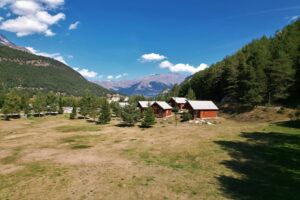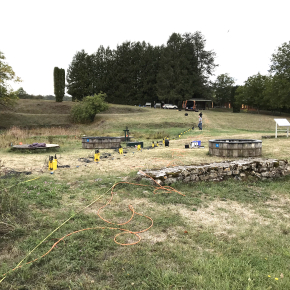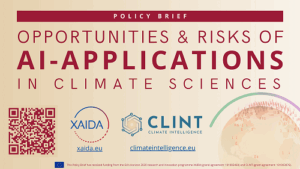Dip your toe in IPCC’s waters
The main message of the IPCC report released in August 2021 is not new: we need to reduce our greenhouse gas emissions sharply and quickly to limit the effects of climate change. But climate science has progressed since the last IPCC assessments and offers greater confidence in our understanding of our climate system and its evolution, and in particular the water cycle. Pascale Braconnot, a researcher at LSCE-IPSL, contributed to the latest IPCC report on the water cycle chapter.
As with many aspects of our climate system, the study of the water cycle and its evolution takes place on several levels. A rise in ocean temperature implies greater evaporation, especially as a warmer atmosphere can contain more water vapour. These aspects also condition the formation of clouds and the subsequent rainfall on continental surfaces and on the ocean. There are still uncertainties on some points, particularly with regard to clouds, but these uncertainties have been reduced by half since the last IPCC report in 2014.
Overall, an increase in global temperatures will intensify the water cycle, with more precipitation globally but more variable with a different effect regionally. The report states it is very likely to see an increase in rainfall at high latitudes, over the equatorial Pacific and monsoon regions, but a decrease over the subtropics and areas of the tropics. It also states that intense precipitation has increased since the 1950s and will continue to increase at a rate of about 7% per degree of warming, with a different geographical distribution from that of average precipitation.
This will result in greater risks of flooding or droughts caused by more disparate rainfall. These events are already visible today. Agricultural and ecological droughts have increased in many regions and will increase with each new increment of warming. However, the frequency and location of these events will depend on projected changes in regional atmospheric circulation, for example monsoons and mid-latitude thunderstorms.
« Continued global warming is projected to further intensify the global water cycle, including its variability, global monsoon precipitation and the severity of wet and dry events » – IPCC Summary for Policy Makers
The water cycle is also affected by solid water: snow, glaciers and polar ice caps. This assessment points to an earlier snowmelt, sooner in the spring at the expense of the summer. This has then implications for water reserves stored as snow and released during the summer. Global warming also has an impact on water evaporation, which will increase both on the ocean surface and on continental surfaces. And greater evaporative demand on land will increase the severity of droughts.
This IPCC report does a remarkable job on the regional aspect. Although more regions will be subject to more common and frequent drought risks, the report puts forward a visualisation of risks and impacts specific to each region. The assessment highlights aridification in the Mediterranean, southwestern South America and western North America that far exceeds what these regions have experienced over the past millennium. But although changes are already being triggered by the CO2 currently released into the atmosphere, the magnitude of these changes will depend on our future emissions.
Human activities, beyond greenhouse gas emissions, also have an impact on climate. Land use and irrigation in particular influence the local water cycle, but also urbanisation. The report discusses with moderate confidence an impact on local precipitation, but more certainly on increased runoff. Groundwater also has its place: the report shows high confidence that groundwater reserves have been depleted since the beginning of the 21st century as a result of water pumping for irrigation of agricultural and arid lands.
To go further
Clouds: unravelling the mysteries of the atmospheric water cycle with Hélène Brogniez
Find out what is happening in the groundwater reserves with Agnès Ducharne: 20,000 streams under the Earth






